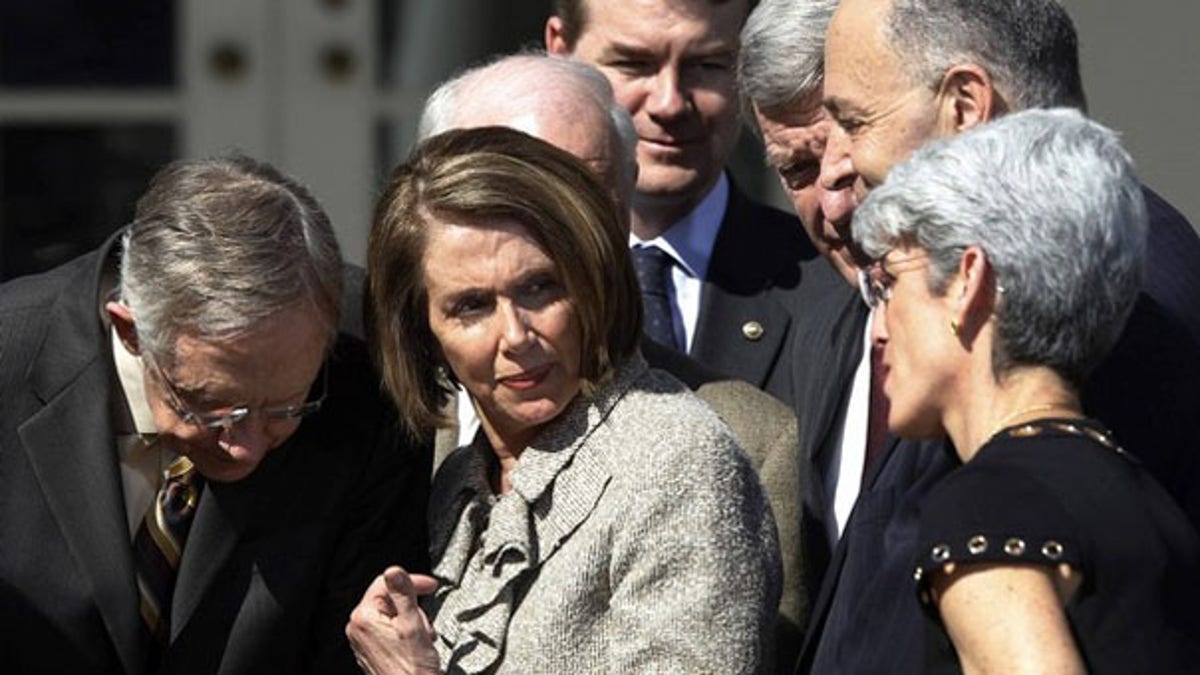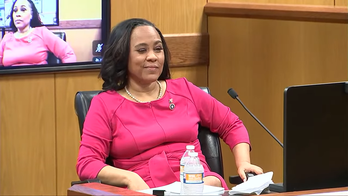
House Speaker Nancy Pelosi confers with Senate Majority Leader Harry Reid and Sen. Chuck Schumer in the Rose Garden March 18. (Reuters Photo)
Members of Congress are setting out on a race against the clock to tackle a jam-packed agenda, while leaving enough time at the end of the calendar to focus on the midterm elections.
It's a daunting task, considering everything on the congressional docket. That would cover consideration of President Obama's Supreme Court nominee; ratification of the nuclear treaty he signed with the Russians; consideration of financial, immigration and climate change legislation; and continuing efforts to spur job creation as the economy limps along the road to recovery.
While dates have been known to slide on Capitol Hill, this time, analysts say, the Democrats who run Congress have good reason to get out of town sooner rather than later.
"They're gonna lose seats -- it's just a matter of how many," said Erin Billings, deputy editor at Roll Call. "And so whatever they can do to try to stop the bleeding or at least triage the bleeding, they're gonna do it. And that means getting members out of here as soon as they can, so they can stump from early October to November 2."
Dealing with the Supreme Court vacancy and the nuclear treaty are constitutional obligations of the Senate -- one reason some expect those issues to be addressed before October. Other issues, though, might be sidelined in the interest of concentrating on the November elections.
"Outside of financial regulatory reform, I don't think we're going to see a ton of controversial measures moving through the House and Senate," Billings said. "There's a lot of talk about immigration reform, there's talk about another run at climate change. I'm not sure if that's really anything more than bluster at this point."
The financial bill is expected to be dealt with because Democrats regard it as an achievable goal that could be put to political use in the fall.
Terry Holt, a former GOP veteran of the House leadership, said that kind of strategizing is common when either party controls Congress. But he said in this case, Democrats are "ignoring the big issues" that matter to voters.
"They put issues that are doable ahead of issues that need to be done, and I think that is the recipe for some political problems for them down the line," Holt said.
Congress will also have to take up a host of spending bills, which, if left unaddressed, would mean a gap in funding for critical government agencies.
Fox News' James Rosen contributed to this report.




